2023 Annual Report
Research and innovation for better health
In 2023, Kaiser Permanente Washington Health Research Institute (KPWHRI) scientists conducted impactful studies on cancer screening, vaccine safety, suicide prevention, dementia care, and more — all contributing to transformative effects on health care.
This work would not be possible without our dedicated and talented employees (91 scientists and 279 staff). Our team’s highlights in 2023 included welcoming Linda McEvoy, PhD, as a lead investigator on the long-running Adult Changes in Thought (ACT) Study. And we celebrated awards and recognitions for many of our researchers honoring their remarkable leadership and contributions to health research. Among these accolades:
- Julie Angerhofer Richards, PhD, MPH, was named Researcher of the Year by the Puget Sound Business Journal for her pioneering research in suicide prevention.
- Pamela Shaw, PhD, MS, received a National Institutes of Health MERIT award for her outstanding research in HIV and AIDS.
- Yates Coley, PhD, was recognized with an Emerging Leader Award from the Committee of Presidents of Statistical Societies for ethical development of clinical prediction models, advocacy, and leadership.
Research highlights
In 2023, KPWHRI researchers published significant findings in many key areas of research, including improving care for substance use disorders, overcoming obstacles to cancer screening, and understanding the lives and care needs of kinless older adults with dementia. Institute researchers also led or contributed to 245 articles in peer-reviewed journals. Much of our research also received attention from the media. Here are just some of our highlights in 2023:
A huge study found that mailing home testing kits significantly increased screening rates for cervical cancer, which is most treatable when caught early. The kits test for human papillomavirus, or HPV — the cause of most cervical cancers. More than half of all cervical cancers diagnosed in the United States are in people who are overdue for screening or have never been screened. The home kits increased screening rates both among people who were overdue and among people who had previously kept up with screening.
In the media: Increasing cervical cancer screening with self-sampling kits at home, JAMA Podcast, Nov. 28
The KPWHRI Vaccine and Treatment Evaluation Unit (VTEU) evaluated the mpox vaccine for adolescents, helping to inform vaccine approval for 12- to 17-year-olds. The mpox virus, previously known as monkeypox, is related to smallpox and can cause serious symptoms, including fever, body aches, and skin lesions. The results of the trial will be used to help the Food and Drug Administration make decisions about approving the vaccine for the younger age group.
A new study compared the performance of 5 different models developed to identify a person’s risk of suicidal behavior. The results showed that simpler models performed similarly to more complex ones, finding that adding lots of extra information, or using more complex machine learning, didn’t improve performance of the model. Simpler models are easier to implement because they require less computing power.
In the media: For effective AI, keep it simple, Politico Future Pulse, March 28
Growing numbers of adults are alone when they develop dementia and do not have family members to help with their care. However, there is little research specific to this population. KPWHRI researchers and affiliates used data from the ACT Study to gain insight into the lives of kinless older adults with dementia, gathering important data on their life trajectories, care needs, and challenges.
In the media: Often hidden, research casts light on kinless adults with dementia, Washington News Service, Aug. 31
KPWHRI researchers tested a novel way to integrate alcohol-related care into primary care. The approach resulted in more people getting screened annually for alcohol use and also increased the number of people who were diagnosed with alcohol use disorder and began treatment. Since the study ended, clinics have sustained high rates of screening and assessment for alcohol use disorder.
In the media: Ask patients about their alcohol consumption, study suggests, Medscape, April 25
Medications for opioid use disorder are effective and lifesaving, but most people with an addiction to opioids never receive this treatment. A KPWHRI-led trial found that adding nurse care managers to primary care clinics successfully increased medication treatment for opioid use disorder — the first randomized controlled trial of an intervention to do so. The researchers also identified key factors associated with the success of the intervention, including support from health system leaders and financial coverage for treatment.
In the media: Adding nurse care managers in primary care boosted OUD treatment, MedPage Today, Oct. 31
KPWHRI’s Center for Community Health and Evaluation (CCHE) found that a quality improvement project that used texting and fotonovela comics to engage with people overdue for colorectal cancer screening helped increase screening rates. The texts and stories were designed to address known barriers to screening and provide encouragement and educational materials for recipients.
In the media: mPulse Mobile and AltaMed research innovative approach to increasing colorectal cancer screenings, mHealth Times, April 20
Researchers looked at the difference between medical and nonmedical cannabis use and the risk of addiction to cannabis, also known as cannabis use disorder. They found that medical cannabis use was associated with a lower risk of moderate to severe cannabis use disorder than nonmedical use. The findings could help clinicians better engage with people experiencing symptoms.
In the media: Cannabis use disorder is common in one state where marijuana is legal, CNN, Aug. 29
KPWHRI’s Center for Accelerating Care Transformation (ACT Center) developed a toolkit alongside patient partners that offers practical tips and resources for anyone experiencing persistent pain, which is the leading cause of long-term disability in the U.S. The toolkit is guided by the experiences of people who have ongoing pain and is designed to support people at any point in their pain management journey.
Our finances
In 2023, KPWHRI’s operating budget was $66.6 million. Federal grant and contract revenue totaled $52 million and other sponsored revenue was $7.5 million. Our number of active grants stood at 320.
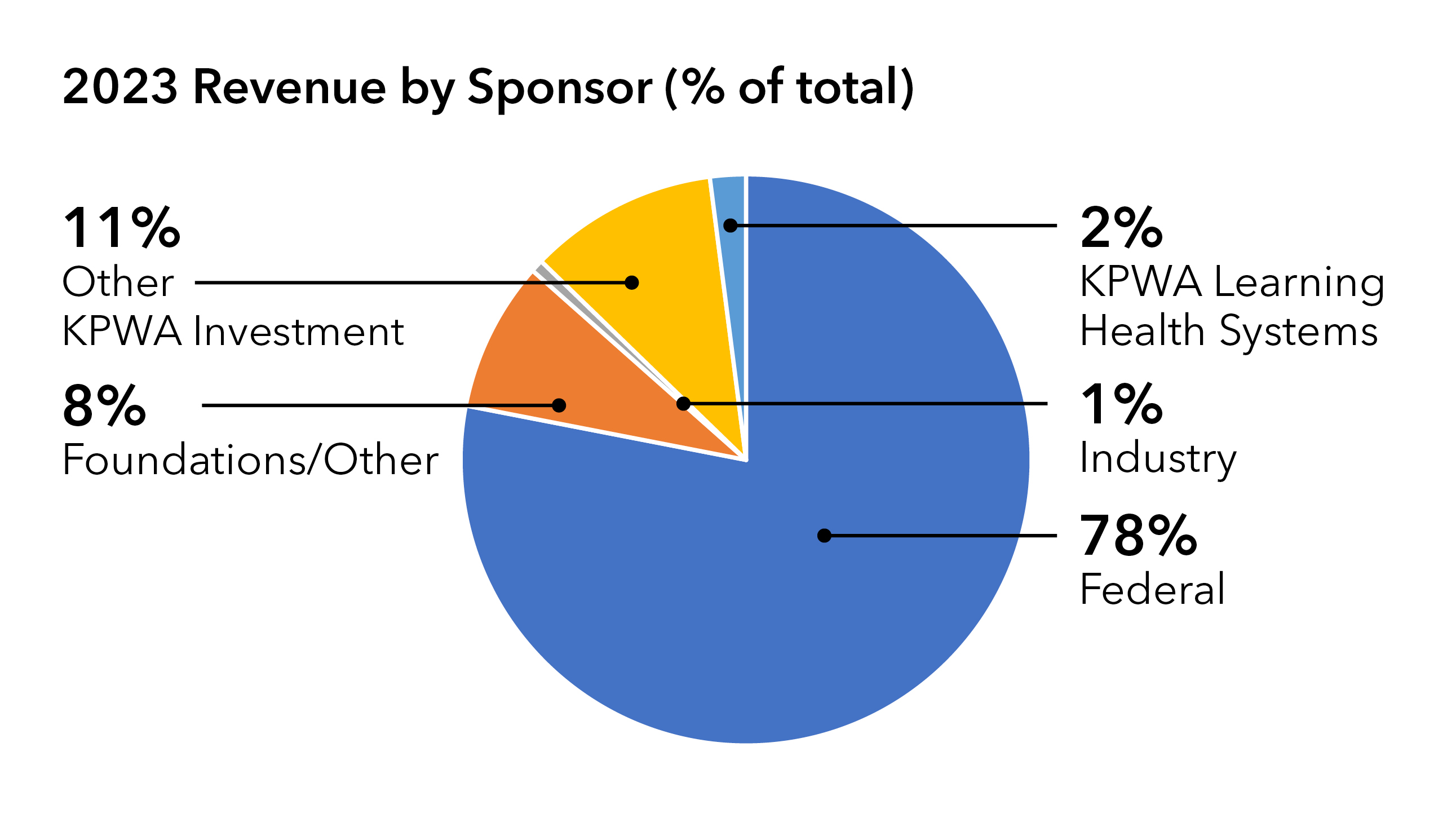
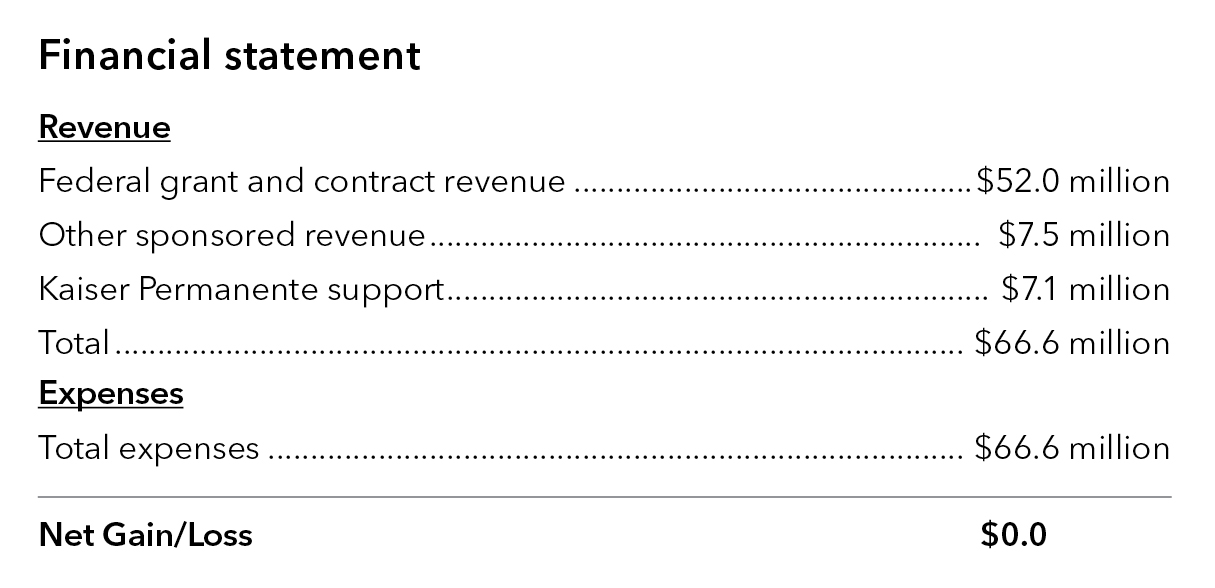
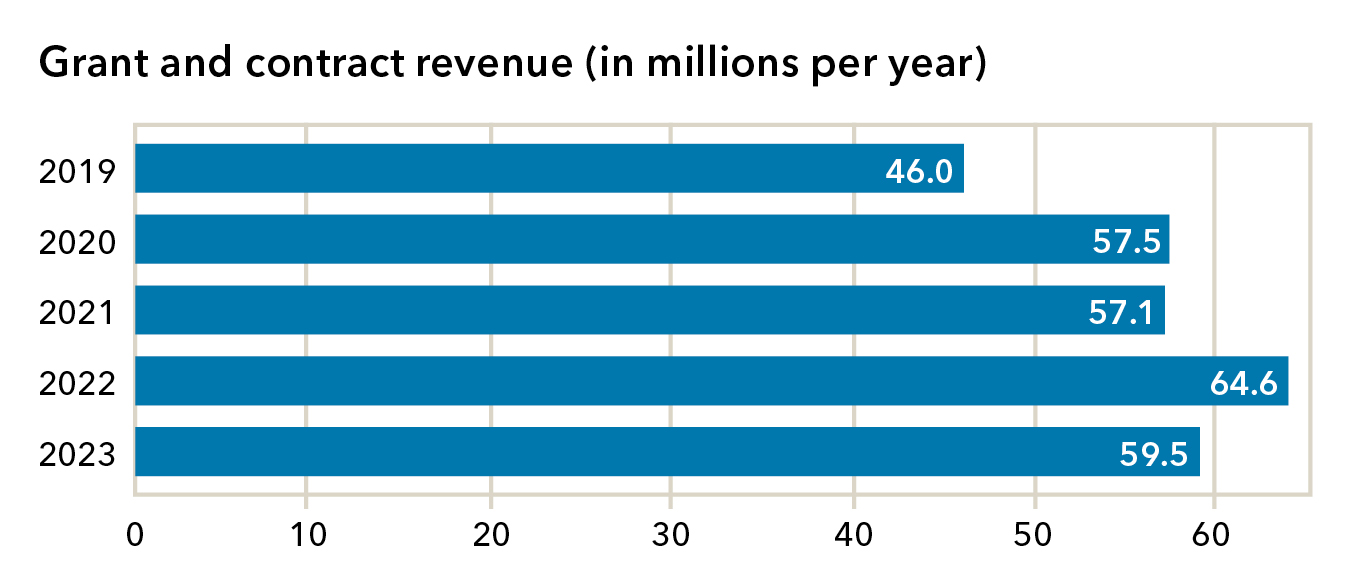
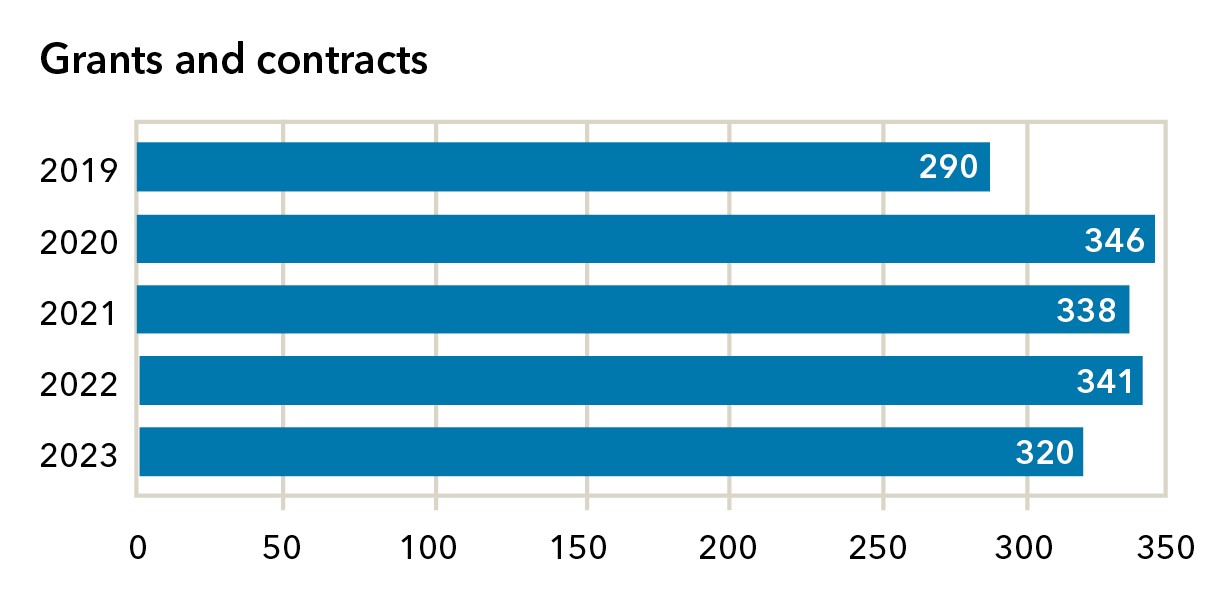
Download a PDF of the 2023 annual report.
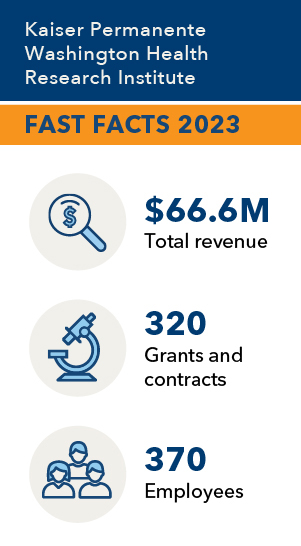
Equity, inclusion, diversity

Our 2023 EID highlights
At KPWHRI, we prioritize EID across all aspects of our work: our research, our workforce, and engaging with communities.
More highlights

For Women's History Month: Q&A with scientific leaders
KPWHRI's executive director and scientific division leaders share their career paths, advice.

We would like to extend a heartfelt thank you to our many collaborators, partners, participants, communities, and funders, without whom our research would not be possible.
See KPWHRI’s website for more information on our research areas, capabilities, and latest news, and to subscribe to our newsletter.
Contact:
Caroline Liou
Communications Director
Caroline.X.Liou@kp.org
1730 Minor Ave., Suite 1360
Seattle, WA 98101
kpwashingtonresearch.org


